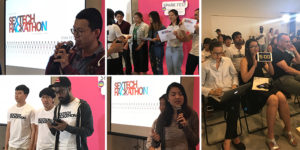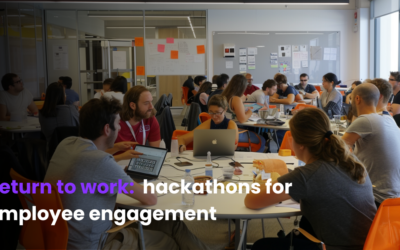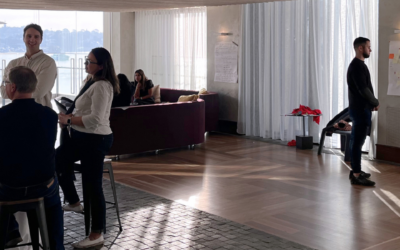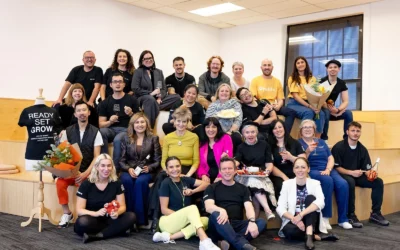“I truly believe that there is a way that technology can help cultivate intimacy,” explained Bryony Cole, CEO, futureofsex.org as she kicked off Asia’s first sextech hackathon in Singapore. The global series of hackathons is catalysing new ideas, teams and solutions with the aim of growing not just new startup businesses, but a whole new industry.
Just think of those who are living in isolation or people with disabilities – these markets present huge opportunities for forward-thinking entrepreneurs. Better access to sex education and sexual partners through immersive technologies like VR, voice enabled artificial intelligence or responsive chatbots, telehealth platforms for sex therapy and wellbeing all fall under the ambit of the term “sextech” - literally the intersection of sexuality and technology. When it comes to sextech, it’s a matter of out-thinking ourselves and our biases.
“When we reach beyond the obvious, we can see so much untapped potential”, explains Bryony Cole.
Held as part of the SPARK Fest, Asia’s first sexual wellness festival, the FutureOfSex.org sextech hackathon joined the push to normalise sex as a regular part of maintaining overall personal health. Kicking off at Straits Clan, Singapore — a new kind of members’ club inspired by a belief that the greatest ideas are often forged through the most meaningful connections — the briefing evening was a chance to hear the challenges, form teams and learn more about the intersection of sexuality and technology from leading global mentors.
Over the next 48 hours, teams emerged, new friendships were formed and experiences were created that will last a lifetime. Considering that around 75% of people had never been to a hackathon before, the participants took to the challenge with relish. Supported by roving mentors and FutureOfSex.org experts, they diligently worked through business models, pitch decks and prototypes — all in the comfort of coworking space, The Hive Lavender. As a creative coworking and maker space, The Hive Lavender was the perfect compliment to the energy of the hackathon and the spirit of SPARK Fest which was taking place in other parts of the building.
Over 65 participants, mentors and subject matter experts were given three challenges to solve over the weekend:
- Smile Makers Challenge: How can we make advertising avenues more accessible for companies that sell adult products, in a society where this is made near to impossible?
- Fempeers Challenge: How can we devise a creative, education and open platform for both urban and rural areas to spread awareness & accessibility about these topics thus reducing the shame and taboos in a consistent manner keeping in mind that rural areas don’t have access to smartphones.
- Future of Sex Challenge: Couples lead busy lives and want to stay connected. How can we bring couples closer together, encourage intimacy, through tech?
Then the teams were given 48 hours to conceptualise just what the future of sex might look like. The solutions included:
- Closr: A couples wearable necklace that connects (and can be activated) by your lover to promote intimacy when you are apart
- These(abilities): A game based education platform primarily for people with disabilities to better understand sexual wellness
- The V: Pocketable smart therapy for vaginismus, including a dilator, app with community platform, and smart therapist
- Get Closr: A media planning and advertising agency for sextech
- The Answer: A digital resource for parents to help with explaining sex to their children, includes community and access to experts
- The Cycle: Sexual education resources – educating women about sexual wellness in India for urban and rural markets
- Emilie: AI oracle for sex education and moderated digital experience – internet safe for children
- Cookie Books: An AI based erotica publishing and authoring platform
- The Red Tent: A digital platform for menstruation that provides emotional support, education, products and cycle-tracking.
And while the solutions that emerged from the hackathon were amazing, one of the most eye-opening aspects to the event was the energy and gravity that attracted participants. This was, in part, driven by the fantastic women in STEM (science, technology, engineering and mathematics) scholarships that were supported by We-Vibe and SoGal Ventures.
As the first sextech hackathon in Asia, it was expected to generate interest. But some participants travelled extensively to participate. Sexual wellbeing specialists flew from Beijing, participants travelled from Thailand and a team of machine learning engineers travelled from Japan.
“It was a truly international hackathon — and we expect to see the same at the next one in New York in August”, explained Bryony Cole. For now, keep up-to-date with the latest in sextech via the Future of Sex podcast, website and mailing list.




